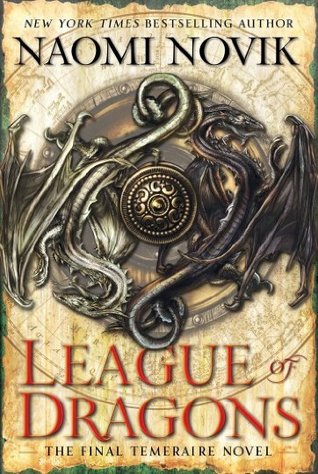 I feel like I've crossed some kind of Rubicon by spending more time over the last three weeks listening than reading.
It makes perfect sense since those three weeks have been spent in an immersive radio school -- which for an old print person with extremely limited radio experience like myself feels a bit like entering Radio Grad School without having taken Radio 101.
I feel like I've crossed some kind of Rubicon by spending more time over the last three weeks listening than reading.
It makes perfect sense since those three weeks have been spent in an immersive radio school -- which for an old print person with extremely limited radio experience like myself feels a bit like entering Radio Grad School without having taken Radio 101.
Fortunately, the instructors and fellow students are as nice, smart, helpful and encouraging as could be.
Sometime in the last week between a presentation by a talented podcaster named Jonathan Groubert (whose podcast is called The State We're In) and grilling a talented classmate half my age who doesn't own an actual radio, I think I finally Got It about podcasts and how radio reaches people now. I am familiar with podcasts -- I used to laboriously download the BBC Newspod and NPR Books podcast to my computer via iTunes, then transfer them to an iPod, then listen while folding laundry or whatever. But that's a pain in the ass and I got out of the habit. I have occasionally downloaded episodes of This American Life or On the Media to my phone and listened there. But mostly, in a pretty old-fashioned, analog kind of way, I get my radio from the radio.
It turns out nobody, or at least nobody under the age of 30, does this anymore.* And that podcasting, now around for 10 years, is hitting its stride in a really interesting way. I had been thinking of podcasts as a way to catch up to radio shows that you missed, or that are not carried on your local station. They are that, but there are also smart, creative people out there making podcasts that aren't carried on many stations, or any stations at all. And you can get them .. for free! On your phone!
If you have a smartphone, you probably have a built-in podcast app. There are also lots of apps out there that make it even easier (Talented Classmate Half My Age recommended one called Downcast, which seems to be well worth the $2.99).**
So what I have been listening to? Of course This American Life, because how can you not? And I subscribed to some old favorites like On the Media, Wait, Wait Don't Tell Me and a bunch of podcasts from the BBC and KCRW.
But I'm most excited about the ones that are new to me. Start at Radiotopia which gathers seven really cool podcasts -- my favorite is 99% Invisible but they are all good. It's not all new stuff either; Fugitive Waves is work from the archives of the Kitchen Sisters and Radio Diaries has the work of producer Joe Richman. These are people whose stories are used as "texts" in radio grad school -- with the added benefit that they are a pleasure to listen to. You learn stuff and you're engaged/entertained.
You know what else I found out? John Oliver has a podcast! It's called The Bugle and it's done with Andy Zaltzman and it's very funny, especially if you're an aficionado of Anglo-American humor/satiric political commentary. Since I haven't talked anyone into handing over their HBO Go password to me yet, I was excited to learn I could get some free Oliver on a weekly basis. Another comedy podcast I haven't listened to yet is WTF with Marc Maron -- and classmates whose judgment I trust say it's great.
There are tons more and I won't list them all. But if you're curious, leave a comment and I'll try to find a recommendation in your area of interest.
And since this is supposed to be a book blog, I'll make a reading recommendation. I finally broke down during a trip into Falmouth this week and went into the really nice Eight Cousins bookstore. I bought a copy of The Storied Life of A.J. Fikry. It was a quick read and exactly what I needed. And it's set in these parts -- on fictional Alice Island, which doesn't exist in real life but which you reach via ferry from Hyannis.
The titular A.J. Fikry is a cranky widower who owns a bookstore on Alice Island. His life is changed entirely when a 2-year-old girl is left in the bookstore aisle. Blurbs and jacket copy recommend it for readers who liked The Art of Racing in the Rain and The Guernsey Literary and Potato Peel Society -- books I always felt I should have read when I was working at the library but avoided because I'm allergic to sentimental, uplifting stuff. But this book (A.J. Fikry) manages to be sweet while avoiding the saccharine. And it is suffused with a love of books and reading and writing. So I recommend it, though probably not to my more skeptical reading friends, or those looking for something with sharper edges.
* It's not just people under 30! Turns out this group also includes ... Ira Glass, the godfather of the public radio revolution (wait that's a bad metaphor -- the Fidel Castro of the Radio Revolution? The Leon Trotsky of the radio revolution?). Anyway here's what he said in response to a reader question in the Guardian:
When do you listen to the radio?
In the morning, when I shave. And really, not for very long. I don't hear the radio that much. I don't own a radio. I listen to everything through apps, or on my iPhone. And then I download the shows I like. Shows like Fresh Air,Radiolab, Snap Judgement, all those shows.
** TCHMA and I had a funny moment yesterday in class when we realized we were both thinking about the story of the guys behind the @Horse_ebooks Twitter feed (and more projects that may or may not constitute Internet performance art). I read the story in The New Yorker. He heard it on TLDR, the On The Media spinoff podcast. The title stands for Too Long Didn't Read -- in other words, it's the anti-New Yorker. We then raced to see which outlet had it first. Turns out Susan Orlean broke the story on the New Yorker's blog. I think.







